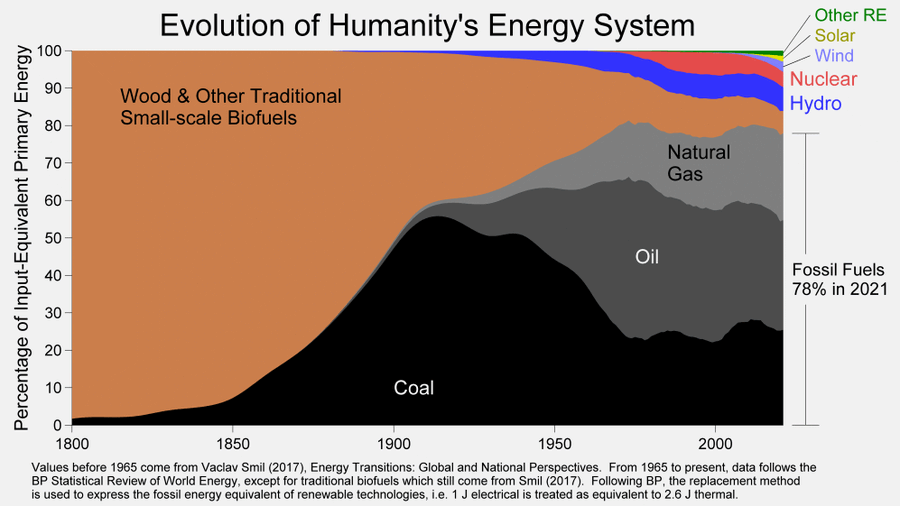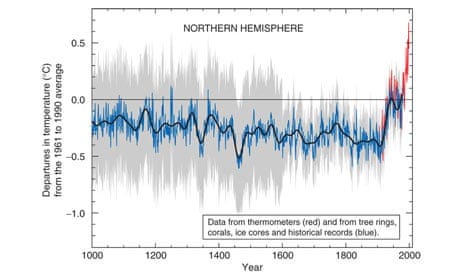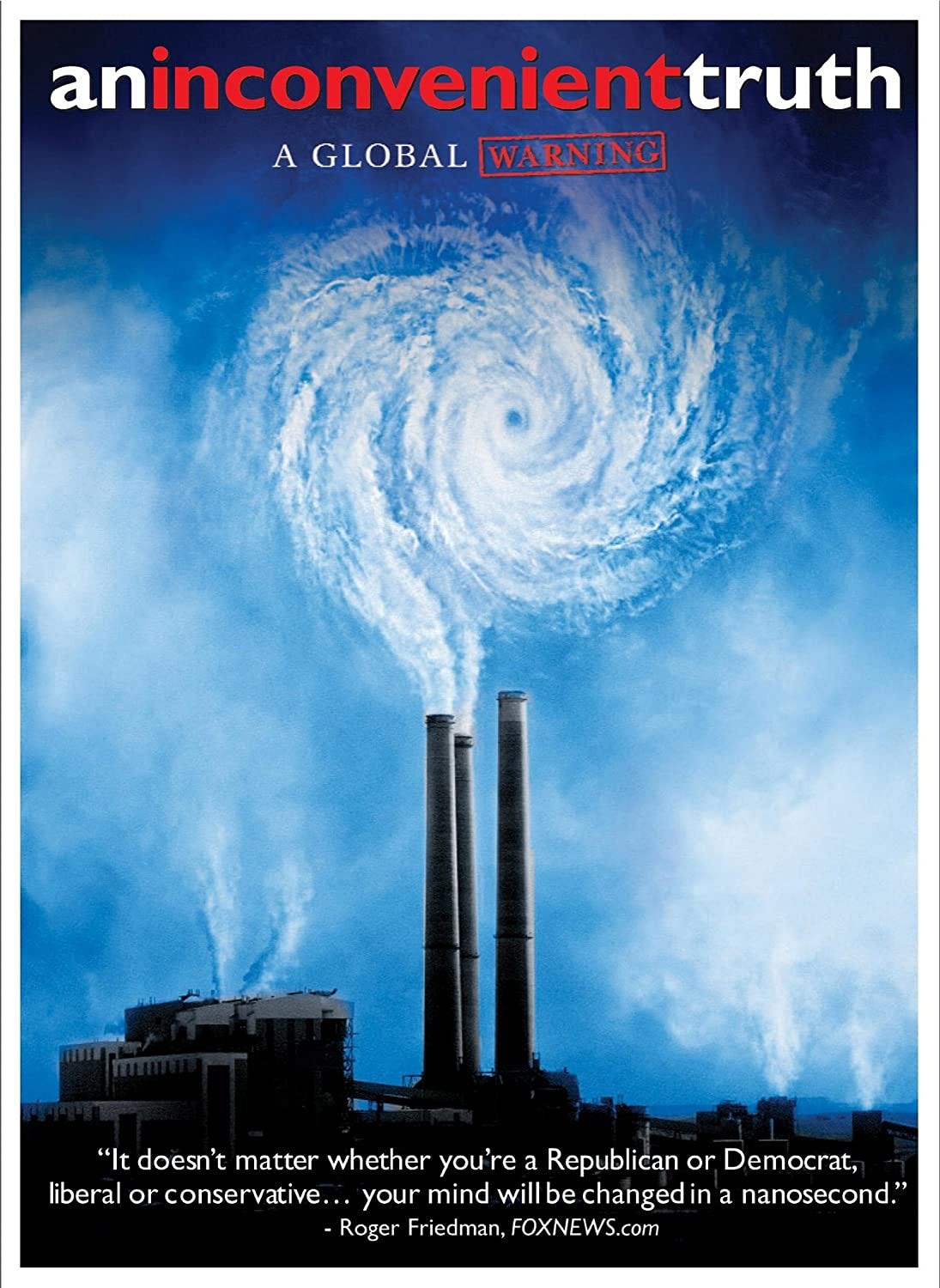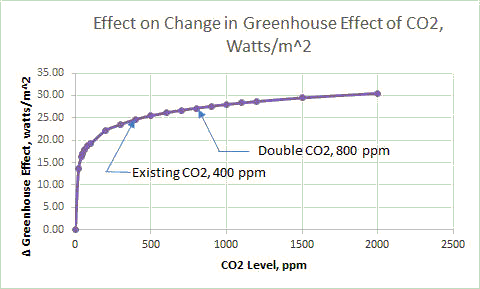Never Let a Good Energy Crisis go to Waste
It's Time to Make Energy Policy a Voting Issue
Before I get into the article, I recommend you save a picture of this chart produced by Dr. Robert Rohde (@RARohde) from @BerkleyEarth. Every politician should be made to acknowledge the current reality of our energy situation because energy policy is about tradeoffs, not absolutism and virtue signaling.
We haven’t had to worry about energy in my lifetime. It was abundant, cheap and readily available so we simply never thought much about it. Sure there were the occasional spike in prices at the pump, but the prices always seemed to rebound and it came to be seen as a transient problem.
So against this backdrop of energy apathy, a new movement was born in the 1980s and 1990s: The Modern Global Warming Movement (later renamed “Climate Change”. It came to prominence in 1998 with the famous publication my Michael E. Mann et al of what came to be known as the “Hockey Stick” showing how global temperature was stable for a thousand years before we started pumping CO2 in the atmosphere.
Al Gore proceeded to make this chart famous in his 2006 Documentary “An Inconvenient Truth”…and the rest is history.
I was curious to understand the science behind climate change to see if it was actually settled science. Or even if it was very probable. I spent 9 months researching every bit of information I could find. If you’re curious about my conclusions as to what the science says, here’s my deep dive below…but they’re fairly irrelevant to the purpose of this article.
Yes, the science of climate change is irrelevant at the moment. It’s a red herring. It’s something that distracts from the bigger issues we are facing which is how do we craft pragmatic and responsible energy policy?
So as much as it pains me to say that science is not relevant…that the truth does not matter…I have to do it because what matters at this point is our energy policy.
Let’s face it, the science is too complicated, there’s too much hardcore math and physics and data. 99.9% of the people are just going to trust the expert that they like because the science is inaccessible to them. Climate Change is such a widely held belief that it's difficult to think that large changes in public opinion are possible any time soon. (If you are interested in continuing to pursue the truth about Climate Science, I recommend following people like Alex Epstein (@AlexEpstein).)
So what do I suggest we do? Let’s beat them at their own game. Accept their set of facts and then show why they’re drawing the wrong conclusions and proposing disastrous policies. Therefore:
We accept the findings of UN’s The Intergovernmental Panel on Climate Change (IPCC) - and keep in mind the IPCC reports do not say anything close to what is reported in the news about climate change…it’s not nearly as bleak as portrayed.
We ask the next logical question which is what should we do about it?
Here we enter the world of what I call “Climate Pragmatism”
Two prominent names you might recognize:
Michael Shellenberger (@shellenbergerMD)
Bjorn Lomborg (@BjornLomborg)
If one is pragmatic then the logical approach is to ask what can and should realistically be done in the face of anthropogenic climate change. Also, keep in mind that the IPCC reports do not predict the types of disasters that are reported in the news and certainly not with total certainty as is portrayed.
To understand these questions let’s consider two extreme positions:
We do nothing and adapt to whatever happens
We do everything, regardless of other considerations
Between these two extreme positions there exist a lot of tradeoffs between lowering CO2 emissions and the associated costs which are reflected in a reduced standard of living.
To offer an extreme example: we could decide to halve our consumption of fossil fuels overnight, but then we would need to accept the tradeoff which would be mass starvation, economic collapse, and systemic anarchy. Some might argue that with the Great Reset, that’s actually the objective :)
So the starting point for any discussion needs to be the acknowledgment of:
Our total energy needs
The availability of energy from different sources
Here I will again share the first chart in this article because it makes certain realities very clear:
Renewables represent a minuscule source of energy so far. What this chart won’t tell you is that they are also intermittent, have large operating costs, require lots of mined natural resources, require lots of land,s and need to be replaced frequently on an earthly time scale (10-20 years).
We are pretty much maxed out on Hydropower because almost all good sites have already been developed.
Nuclear Energy, which is a non-greenhouse gas emitting, is decreasing as an energy source. That’s a bit strange if climate change is an existential threat…
Most importantly, fossil fuels are by far the most important source of energy and will continue to be so for the foreseeable future. Therefore, don’t mess with their availability should be a cardinal rule.
I believe every politician should be made to look at this chart and acknowledge that fossil fuels are still extremely important for our future prosperity.
There should be a number of important elements to be considered for any energy policy:
Future Fossil Fuel Availablity: Any energy policy should account for how that policy will affect future fossil fuel supplies because you can’t just snap your fingers and get more. Investment in fossil fuel extraction requires years of lead time, so an energy crisis today cannot be easily fixed anytime soon.
Quality of Life Tradeoffs: There are very real tradeoffs to consider when enacting green policies and those tradeoffs almost never affect the wealthy or people who are making those policies. For example, subsidizing solar energy creates an excessive burden on the poor. Why? First, because energy is a larger percentage of their total budget so rising energy costs hit their overall budget harder. The second is because rich people can afford to buy into the energy grid by purchasing solar panels, thereby passing on even more of the burden to the poor.
Global Impact: Many green policies only give the appearance of being green because climate change is a global problem. You’re not really going green if you are just outsourcing or shifting the problem to another part of the planet. Here I’ll give the example of how American natural gas producers are being held to unrealistically high standards as far as methane leakage from wells in the name of the environment. But if you shut down the American well, the supply will just be replaced by a Russian well which has nowhere near the same environmental production standards as in the US.
Incurring big costs in the US or EU to reduce CO2 needs to be considered within the realities of global CO2 emissions.
Cost Benefit Analysis: Simply put, sometimes it makes more sense to adapt to the consequence of climate change than to try to prevent it. Here we need to keep in mind that increased warming created by increasing CO2 decreases logarithmically. At some point, it won’t make much more of a difference how much more CO2 we put into the atmosphere because the greenhouse capacity will be essentially saturated (if it isn’t mostly so already).
Use the Energy Crisis to Put Energy Policy on the Ballot
After years of irrational Green Energy Policy, the roosters are finally coming home to roost in a spectacular way.
The pain will be seen or felt by everybody and so it is imperative to use this crisis to drive home the point that the POLICY is nonsense and does not solve the problems they claim to.
For example:
There are tons of fallacies in the policies they are proposing so with everybody’s attention on energy, now is the time to counter their narratives with reasonable, factual and accurate criticism as well as common sense solutions.
You are doing climate alarmists a favor if you engage them on the SCIENCE of climate change because then they’ll just call you a climate denier and point to all their “science”.
Instead, politicians need to make Energy Policy the priority.
They need to be able to:
Understand the basics of energy challenges we face
The realities of our energy needs
The pro and cons as well as limitations of different energy sources
Alternative solutions not being talked about (e.g. nuclear)
Propose common sense solutions
I am not an energy policy expert so I will not go any further, but I’ve mentioned some people that are in this article.
My point is that there is no better moment to start talking about common sense Energy Policy and make it a strength of your policy platform.
Never Let a Good Energy Crisis go to Waste: It's Time to Make Energy Policy a Voting Issue.
Epilogue:
Writing this required a change in my thinking because I’ve been very vocal about pointing out that the “science” underpinning anthropogenic climate change is very weak. But in reality, it is more strategically advantageous to accept “the science” (IPCC Reports), because the reports don’t say nearly what the media or politicians claim.
Also, in pragmatic terms, this is an issue that needs to be fought and won at the political level and politicians are all about policy. Add to this the unique crisis that we are facing at the moment, and it makes more sense to shift the focus to energy policy because there’s been a lot of very stupid energy policy in the past decade. And it is very simple to demonstrate that these policies were poorly conceived and will not come close to making a difference in the grand scheme of things.












Always glad to see a gummi post! Hope things are well!
The simple truth is that government has no idea what Earth's 'optimum' temperature even is, and the idea that they could get and keep the planet there with enough money and power is just insanity. Anybody who's not on board with nuclear energy isn't serious about solving the 'carbon crisis', and I think we're starting to see the attitudes of the 'leaders' show itself -- you must sacrifice to prevent possible future humans from possible hardship.
or simply ask them what the temperature was in the high Chilean desert in the year 807, or at the south pole in 1273. They don't know? Neither does "science". It is a guess as to what it was using silly proxies that can be, and is, manipulated for political ends. And yet these proxies are used to "prove" global warming. We only have halfway decent measurements for a century and only in limited areas not worldwide using uncalibrated thermometers. Yet the "scientist" can claim warming to the hundreth of a degree? Give me a break.